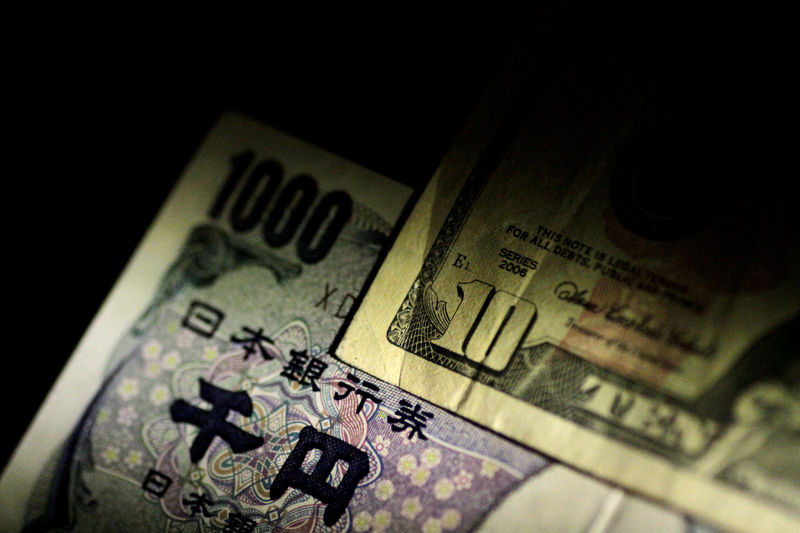
Investing.com– Most Asian currencies weakened on Friday with the Japanese yen recovering marginally from a five-month low as strong inflation data only partially offset a dovish outlook for the Bank of Japan.
Regional currencies were pressured by a broad push into the dollar, which hit an over one-year high after the Federal Reserve flagged a slower pace of rate cuts in 2025. The greenback remained well-bid even as markets positioned for a potential U.S. government shutdown.
The dollar index and dollar index futures rose marginally in Asian trade, and were at their strongest levels since November 2023. Focus is now on key PCE price index data due later on Friday for more cues on interest rates.
The Chinese yuan weakened to a more-than one-year low after Beijing left a key lending rate unchanged.
Yen rises from 5-mth low on strong CPI; BOJ outlook dovish
The Japanese yen was among the better performers on Friday, with the USD/JPY pair falling 0.2% as consumer price index inflation data for November read slightly stronger than expected.
But the yen was nursing a tumble to its weakest level in five months on Thursday, with USDJPY having surged to 157.93 yen- its highest level since late-July.
While strong CPI data did further the case for an eventual rate hike by the Bank of Japan, comments from Governor Kazuo Ueda on Thursday suggested that a hike will come later rather than sooner in 2025.
The central bank left interest rates unchanged and signaled that inflation will continue to rise. But Ueda’s comments on watching springtime labor wage negotiations suggested that a hike may not come until at least March.
Recent weakness in the yen also spurred renewed speculation over government intervention, after ministers made a verbal warning on yen weakness.
Chinese yuan at 1-yr low; PBOC leaves loan prime rate unchanged
The Chinese yuan’s USD/CNY pair rose 0.2%, hitting its highest level since November 2023.
The People’s Bank of China left its benchmark loan prime rate unchanged on Friday, as widely expected, with the central bank seen having limited headroom to cut rates further amid sustained yuan weakness.
Looser monetary policy has also provided limited support to the Chinese economy over the past year, with Beijing expected to ramp up fiscal spending in the coming year to boost growth.
Broader Asian currencies mostly weakened on Friday, and were nursing steep declines this week as traders remained biased towards the dollar. The Australian dollar’s AUD/USD pair fell 0.2% and remained at a two-year low, while the South Korean won’s USD/KRW pair rose 0.4% and was close to its highest point in nearly 15 years.
The Singapore dollar’s USD/SGD pair was flat, while the Indian rupee’s USD/INR pair steadied after hitting a record high above 85 rupees earlier this week.

